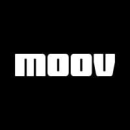In Japan, children can — and are often expected to — run errands. These Hochi-go, or left-alone children, are commonly seen wandering the streets, taking the subway and doing grocery runs. So prevalent is this rite of passage that a Japanese television show documenting children running errands for the first time has been airing for almost three decades.
The importance of Japanese parents delegating to their children — and fostering autonomy — serves to underscore the cultural priorities of a society built on community trust and social safety. It signals an implicit, interpersonal understanding — that it takes a village for children to try and fail, to learn and grow. In turn, they become functioning, accountable adults.
For employees of tech companies, autonomy can accomplish similar goals. Much like the parents, neighbors and storekeepers of Japan that ensconce their little couriers in support and encouraging trust, tech companies that foster a similar culture of autonomy can boost employee retention and increase productivity. Trusting teams to own their roles, while offering guidance, produces a more cohesive workforce.
“When leaders don’t trust people to use their unique ideas and skills to solve a problem, it results in lower-quality work and frustrated employees,” said Stevie Gould, Moov Financial’s brand designer. Given control over her work, she’s incentivized to experiment, for both the benefit of personal growth and company innovation. “All my ‘what if’ moments are rewarded with, ‘You won’t know until you try.’”
For scaling or hybrid companies, autonomy can lead to a tenable, self-sustaining workflow free from the frictions of micromanagement, especially as teams expand and colleagues are distributed remotely. A 2020 report by McKinsey suggests that a good workplace involves granting employee autonomy to make their jobs meaningful.
Leaders that trust in their employees’ craft and expertise are also reciprocated with company culture built on collaborative trust. “Autonomy is always the goal,” said Bryan Collick, Braze’s senior manager of business operations, engineering. “An ideal workplace is where we look out for ourselves and for others: a place to work cooperatively on common goals.”
For a closer look at this culture of autonomy, Built In Austin sat down with Braze, Moov Financial and LumApps to see how employees at these companies are doing great work — all without adult supervision.

Braze is a customer engagement platform that connects consumers and brands through multi-channel marketing campaigns. By leveraging real-time data, brands across many industries can optimize the best customer-centric interactions. With offices all over the world, from Austin and Berlin to Tokyo and Singapore, Braze’s borderless software solutions can power customer engagement anywhere.
But with such a large and diverse workforce, employee autonomy is an important focus for Braze. “This is really the only way to operate at scale,” said Bryan Collick, senior manager of business operations, engineering. “You can’t always make every call, review every line of code, push a button on every launch.”
What does autonomy at work mean to you?
In order for an organization to excel, each person must feel responsible for their work, and feel they have a duty to make things better. I think about the basic idea of anarchism — that people can achieve goals without folks in charge, and that power can be corruptive. Having trust and developing a culture of regularly maintained alignment can get you to where you don’t need total control. This is core to Agile philosophy; it’s also key to General Stanley McChrystal’s “Team of Teams.”
When I used to scrum teams, I would tell them to deliver 100 percent of their promises 95 percent of the time — while alerting customers of the 5 percent risk the moment it’s discovered — and no one will ever care how they delivered. Customers will love them as their near-perfect, reliable delivery source. If you want status or projections, you may not trust the process and may need assurance. As long as that need is there, autonomy will be tough.
How have you been able to build a satisfactory level of autonomy at your current employer?
As you level up in your career, there is a certain amount of inherent autonomy that is expected. A lot of my work now is actually to enable autonomy for others. Build systems that seamlessly provide data that stakeholders need so they don’t ask you for it — that kind of thing. I think you can never have enough autonomy, you just need to ensure you don’t have more autonomy than you’re ready for.
There were times in the past where I felt total autonomy — choice of projects, approach and deadline — but I felt disconnected from accountability. Autonomy without accountability is just irresponsibility. It is important to feel that you’re doing things your way and that your way is making a tangible difference. Working at Braze at this stage in its story gives me accountability to its future and its ability to succeed.
A lot of my work now is actually to enable autonomy for others.”
How does your employer or manager support you in finding the autonomy you need in your career?
I chose Braze because of the opportunity to grow in a way that made my career goals more tenable. I’m incredibly fortunate to have had the ability to make the change, and for Braze to see value in where my career is headed. In a sense, whether I succeed or fail — at Braze or in my career goals — is pretty much my call. There’s not a blueprinted path for either scenario. If you are looking for a paint-by-numbers, instructed situation, Braze, and arguably startups as a whole, probably won’t be high on your list. But if you’re wanting to try, fail, learn and grow, I personally have found the company to be a place that supports this.
Moov Financial is a payment platform that wants to streamline how users send, receive, store and pay with money. The company’s payment technology can be added to products of software companies for ease of use, bypassing the need for multiple vendors.
As a fully remote startup, the company works out of 25 states and three countries. The team attributes its success as a distributed workforce to making autonomy a company value. “No matter what your job title or level is, you’re treated like an equal at Moov,” said Brand Designer Stevie Gould. “You have a seat at the table and you’re encouraged to speak up and give your opinions.”
What does autonomy at work mean to you?
Autonomy is one of those concepts that some organizations struggle with, unfortunately. To me, true autonomy is having the ability to shape both my work and environment so I can build my best work. It means having full control over how I deliver my projects.
For example, leaders assign problems, like what exciting swag item they should have at the booth, instead of prescribing the solution, such as designing a green notebook. As a designer, an autonomous work environment gives you the time and space for experimentation with plenty of opportunities to collaborate in a judgment-free zone. And in the end, you’re trusted to make the final decisions.
How have you been able to build a satisfactory level of autonomy at your current employer?
Satisfactory doesn’t even begin to describe my experience designing at Moov. Autonomy is the lifeblood of the organization because our leaders won’t tolerate it any other way. Everyone is treated like the experts we are, and I’m trusted to execute my way, even on important projects like redesigning our entire website. Other companies wouldn’t assign that type of project to a new team member, and if they do, they’d micromanage every step. Moov actually saw my newness as a strength and encouraged me to own the entire project, giving me the freedom to push the design wherever I wanted.
Our leaders empower us to work on our own but know when to offer support. If you ask for help, it doesn’t reflect poorly on you. They respect our craft — so much so that it’s one of our values — and they trust me to do the work, as well as shape how and where we grow as a team. Since joining Moov, I’m more confident and stronger as a designer.
Autonomy is the lifeblood of the organization because our leaders won’t tolerate it any other way.”
How does your employer or manager support you in finding the autonomy you need in your career?
Unlike some organizations, Moov has perfected remote-first life without resorting to micromanagement. Our leaders even made “reciprocate trust” one of our core values. We’re all given the trust and flexibility to work how and when we want in order to do our best work, but that doesn’t mean we’re building alone. Instead of a bunch of meetings and Slack messages, my manager schedules one weekly check-in to talk about work, but also makes time for collaborative brainstorms. They’re an informal and safe place for everyone, even our manager, to spitball, explore ideas and be vulnerable.
Another way our company supports autonomy is by caring about our interests both outside of our role and in our personal lives. In addition to work-life balance, I’m given tools and a learning stipend to explore coding. When I mentioned wanting to build a new brand guide, it was met with an enthusiastic, “Go for it!” And the most rewarding part is that we give everyone credit for their work and the entire organization celebrates each other’s accomplishments — we even get shout-outs from the CEO.

LumApps is a digital workplace and intranet platform that helps organizations with employee engagement. Offices can often settle into silos with frictional internal communications, so LumApps wants to give users a virtual space to not only access their company’s communities and content, but foster an environment of collaboration as well.
Internally, LumApps embraces a hybrid work model to give more freedom to its employees. To retain collaboration among its flexible staff, the company understands the importance of autonomy for team members. “Autonomy means you are allowed to complete a project or an assignment without being micromanaged,” said Mary Kaplan, product marketing manager. “Personally, it’s the only way I can work.”
What does autonomy at work mean to you?
Autonomy at work means that you are trusted and respected, by both your leaders and your peers, to get the job done and work the way you need to work.
It’s a great feeling to feel autonomous at work. In product marketing, I’m responsible for product go-to-markets, which is super exciting. Luckily, I work with a group of people who let me be autonomous in my go-to-market planning and execution. They’re always there to bounce ideas off of and give support, but I’m totally responsible for the product launches.
How have you been able to build a satisfactory level of autonomy at your current employer?
That’s the beauty of a start-up — you have to be self-sufficient and autonomous to get your work done. People trust me to do my job well and on time. Each time I’m given a new project, I’m given a high level of autonomy to complete the assignment.
It’s a great feeling to feel autonomous at work.”
How does your employer or manager support you in finding the autonomy you need in your career?
Typically my manager is quite hands-off. They state what they’d like done, they let me know their opinions, they offer their support, but ultimately they leave it up to me on how to plan the work, involve the right people and resources and get the project done. We have weekly check-ins to make sure I have what I need, and we often brainstorm the next best steps in a project.











